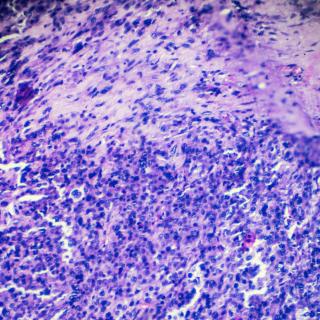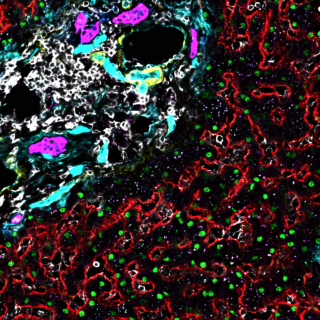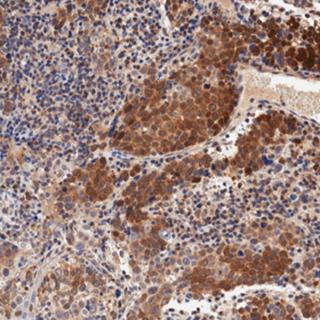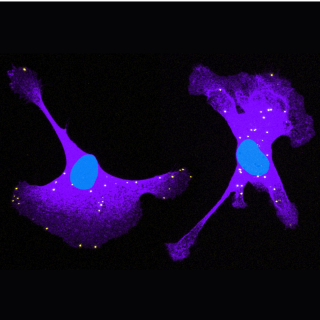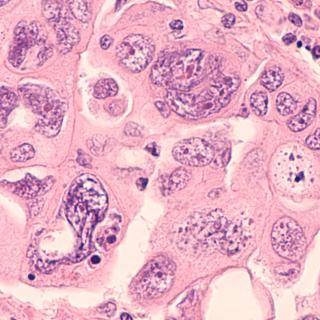Our Discoveries
Gene therapy proves successful in children with Wiskott-Aldrich syndrome
Wiskott-Aldrich syndrome (WAS) is a rare genetic disorder where males lack a gene critical for healthy blood and immune cell functioning. In a recent clinical trial, gene therapy for WAS was found to improve patients’ symptoms — an effect that was sustained for many years afterward.
Read MoreNew CAR T-cell therapy eliminates rhabdomyosarcoma in mice
After seeing excellent results of a CAR T-cell therapy against rhabdomyosarcoma in mice, a team of CCR researchers is preparing to test the immunotherapy in humans.
Read MoreNew findings highlight shared features of human and canine osteosarcoma
Molecular signatures of canine osteosarcoma prognosis could also predict clinical outcomes for human osteosarcomas.
Read MoreShining a light on an elusive cancer metabolite
Researchers have long sought a means for subcellular imaging of acetyl-CoA, a metabolite suspected to play a critical role in turning genes on and off. In an important advance, CCR researchers have invented a glowing biosensor to detect the elusive metabolite, paving the way for future studies.
Read MoreSeldom-studied immune cells in the liver may be helpful in treating cancer
CCR researchers have discovered that certain immune cells in the liver, called MAITs, often surround liver tumors but fail to infiltrate them. An analysis suggests that treatment with immune checkpoint inhibitors could potentially trigger these immune cells to help them infiltrate and attack the tumors.
Read MoreChromatin modifier linked to immunotherapy resistance in HPV-negative head and neck cancers
Researchers have discovered that a chromatin-regulating enzyme called SMYD3 limits the access of cancer-attacking immune cells to HPV-negative head and neck cancers, therefore decreasing immunotherapy’s effectiveness. Depleting SMYD3 increased the cancer’s sensitivity to a standard immunotherapy drug in mouse models.
Read MoreNew insights explain how the same protein can serve different functions
Proteins can often choose between potential interacting partners and serve different functions inside cells. How these choices are made is not entirely clear. New research shows that the exact location in a cell where the protein is produced and the rate of its synthesis are key factors in this choice.
Read MoreNew T-cell therapy shrinks solid tumors in early-phase clinical trial
Trial results show that engineered T cells can effectively target mesothelin, a protein found on many solid tumors.
Read MoreStudies of an experimental ovarian cancer therapy identify a biomarker of treatment response
A new biomarker may identify patients who can benefit from drugs that inhibit CHK1 after their ovarian cancer has become resistant to PARP inhibitors.
Read MoreNew analysis reveals potential effective drug combinations for treating lung cancer
Researchers compared more than 5,000 drug combinations in lung cancer cells, the results of which point to combinations that may be particularly effective in combating cancer in humans.
Read More
